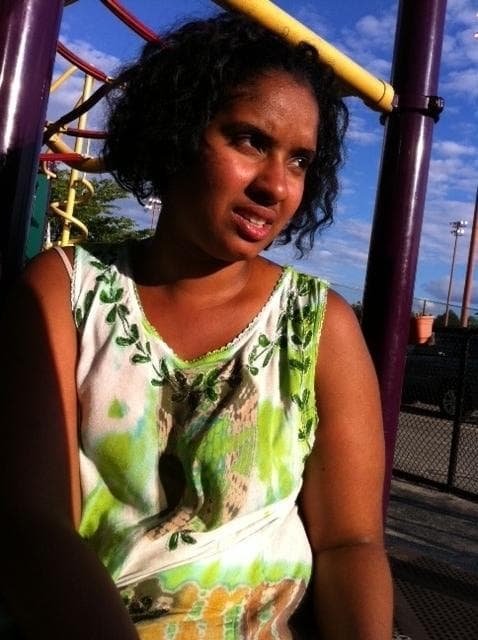Advertisement
As Income Gap Widens, Boston Tests New Anti-Poverty Program
Resume
BOSTON - As the gap between rich and poor widens in Massachusetts, a new way to address poverty is being tested in Boston. Traditional anti-poverty programs have long depended on case workers, but this privately-funded initiative asks low-income families to rely on their peers. The initial results are promising.
Isabel Torres is 25 years old. She's a single mom with three kids under the age of eight. She's been homeless. And a few years ago, she got in trouble for selling crack. Over the years, she's taken part in dozens of support programs and worked with an army of case managers. Some helped, but she said most of them didn't make much difference.
"So they were really making decisions for me. I didn't have the ability to make decisions for myself," Torres said.
Now, Torres is doing what she wants to do, going to college full-time. She's also holding down two jobs. And she might not have done it without some gentle nagging.
"Alright ladies. Let's get started," said Joanne Diaz, wearing a train conductor's cap and holding a clipboard in front of her.
Isabel is here, along with three other women. They were all recruited by a non-profit that started in San Francisco. It's called Family Independence Initiative, or FII.
"We're going to go around the table and see where everybody is at on their goals, see if anything has changed," Diaz told the women.
One woman said she's closer to getting a new car. Another has to find a new apartment because she makes too much money now for her subsidized housing. There's not as much nagging these days since people are making progress.
Isabel gives her update.
"I applied for a third job, because after realizing that having two jobs, and I counted up the hours of my first job, what I would make annually, and then my second job, of what I would make annually if I was to work 40 hours a week, and it doesn't even go up to $30,000," she said. "So, it only goes up to, like 27 [$27,000] or 28 [$28,000]."
The organization's own analysis finds that during the first six months of the Boston program, households have raised their incomes by 13 percent.
There are a total of six groups like this operating in Boston since last year. Jesus Gerena heads the Boston office of FII and just recruited more families. He said he's not trying to replace traditional welfare and other social service programs, but he would like to change them.
"What we're trying to do, is to say, 'For the last 60 years, there's been a war on poverty, and things have only gotten worse,'" Gerena said. "So what can we do different and what did people do prior to be able to get people out, and help them to get out?"
One answer, is cash.
FII pays families $30 every time they do something good for themselves. If they go to a doctor's appointment: $30. Take a class: another $30. Improve their health somehow: $30 more. They can earn up to $2,400 a year. Each family gets a laptop from the organization to keep track of their progress.
Margaret Hall runs Greenlight Fund, a Boston-area philanthropy focused on families and children. Last year, hall's fund awarded FII $800,000 to spend over four years.
"A year into this, the results in Boston have been better than we or I think Family Independence Initiative thought they would be, " Hall said. "And this is in a time where the economy has been rocky. So we are really pleased with what we've been seeing."
FII's own analysis finds that during the first six months of the Boston program, households have raised their incomes by 13 percent. They're saving more, and their kids are doing better in school. In San Francisco, households raised their earnings by 20 percent over a two-year period. And three out of five families reduced their debt.
It's not clear how many of the families stopped relying on welfare programs because of FII. But poverty researchers are taking notice — and say these innovations could revolutionize welfare policy in this country.
The FII program — for all of its success — still remains a bit of a black box," said Rourke O'Brien, a sociologist at Princeton University.
He said it's hard to know why this program works.
"So we need to know, through more rigorous evaluation, is it the financial reward? Is it the peer network? Is it this idea of setting a goal and tracking it every month? Or is it some combination of those elements that really makes this program work?" he asked.
"Only when we're able to distill how this program is making all of these, kind of impressive achievements, will we be able to have some real direction for how we can reform our existing social policy and programs.
But if you ask Torres, she says it's all about the social network she's created.
This program aired on September 1, 2011.